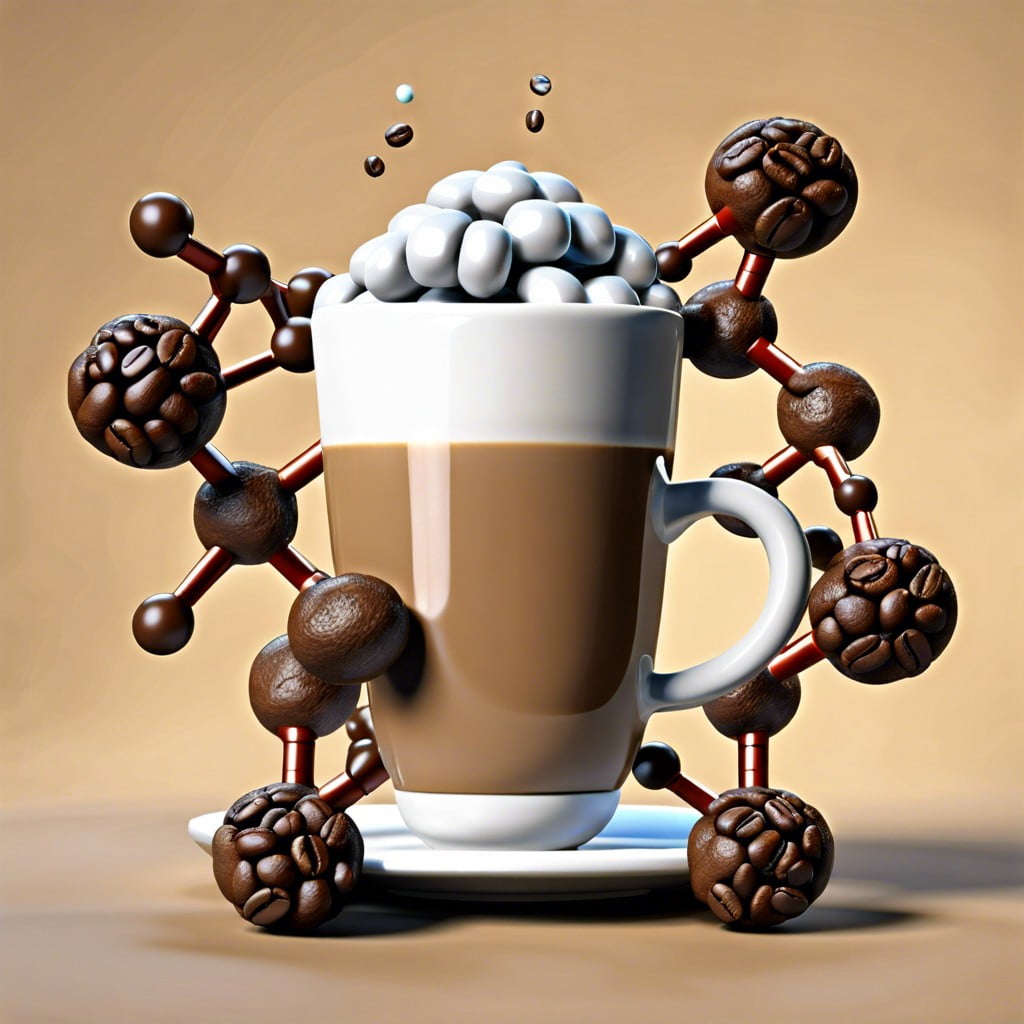Discover the surprising reasons why caffeine can sometimes lead to tiredness instead of an energy boost.
Caffeine Blocks Adenosine Receptors in the Brain

Adenosine, a neurotransmitter, is like a sleep-inducing molecule that accumulates in your brain throughout the day, promoting tiredness. Think of it as a sandman, slowly but surely sprinkling drowsiness across your mind. The usual process is simple: as adenosine levels increase, your alertness decreases.
Caffeine swoops in as the hero—or so you think. It temporarily blocks adenosine from cozying up with its receptors. Essentially, it’s like putting a ‘Do Not Disturb’ sign on your brain’s sleep door. This blockage leads to a temporary boost in energy and warding off fatigue.
However, this is where the plot thickens. The body doesn’t stop producing adenosine just because caffeine is in the picture. It’s still piling up in the background. So when the caffeine starts to fade, there’s a backlog of adenosine knocking on the door.
Finally, when the effect of your cup of joe wanes, this build-up of adenosine rushes in, potentially making you feel even more tired than before. Your brain’s door swings open, and the gentle lull of sleepiness you delayed comes flooding in, which might feel like an energy crash.
Some People Build a Tolerance to Caffeine
Your daily cup of joe might not be the wake-up call it used to be. That’s your body adapting to the caffeine buzz over time—building what’s known as tolerance. It’s like listening to your favorite song on repeat; eventually, it doesn’t hit the same notes as it once did.
Think of your body as a clever little chemist. It learns and adjusts to the regular intake of caffeine, becoming more efficient at metabolizing it. Consequently, you may find yourself needing more to achieve the same energizing effect. This tolerance development is a classic biological adaptation.
Now, don’t let this turn into a caffeine escalator, constantly upping the ante. If you’re guzzling more coffee to fight the fatigue, take a pause. It might be your cue to cut back and reset. Giving your body a break from caffeine can help in reducing your tolerance, making that morning espresso as satisfying as it was at first sip.
Relationship Between Caffeine and Sleep Quality
Caffeine, a notorious sleep thief, may invite drowsiness later by disrupting slumber. It prolongs the time it takes to fall asleep and shortens deep sleep stages, leaving one tired the next day. Sipping your favorite latte close to bedtime can trick your body into a lighter, fragmented sleep pattern, and you might wake up feeling like you’ve run a marathon in your dreams. While caffeine doesn’t lose your number, its effects lessen with each catch-up session, leading to an ironic twist where your pick-me-up could be setting you up for a letdown.
How Genetics Affect Caffeine Metabolism
If caffeine seems to send you on a quick nosedive to naptime, your DNA might be the backstage crew working that curtain drop. Picture this: your body has its own way of processing caffeine—kind of like a personal barista setting the pace at which you sip your espresso.
Some lucky folks have genes that code for speedy caffeine breakdown. That means they could guzzle a double shot and still hit the hay without a hiccup. But others, well, they have a genetic setup that’s more like a slow drip coffee. For them, the same dose can hang around in the bloodstream, inviting drowsiness once the initial buzz fades away.
Here’s the kicker: these slow metabolizers can experience the paradoxical effect where instead of getting revved up, they’re pulling into the land of Z’s. This is why your friend might be bouncing off the walls after a latte, while you’re ready to curl up for a catnap.
Remember, your genetic makeup isn’t just some random scatter of beans; it’s the blueprint for how your body deals with the caffeinated brew you throw at it. Embrace the uniqueness of your genetic profile—it’s the behind-the-scenes director of your personal caffeine scene.
Signs of Caffeine Withdrawal Symptoms
Headaches are the hallmarks of caffeine withdrawal, as your body adjusts to the absence of its habitual stimulant. The throbbing in your temples is like a morning without coffee – unwelcome and persistent. Fatigue drapes over you, a heavy cloak you can’t seem to shrug off, no matter how many z’s you catch the night before. Mood swings may have you riding an emotional rollercoaster, with irritability as your unwanted companion. Concentration scatters, making the simplest tasks feel like a puzzle missing a few pieces. Despite cravings tempting you back to the coffee pot, these symptoms are transient, signaling your body’s quest to recalibrate.